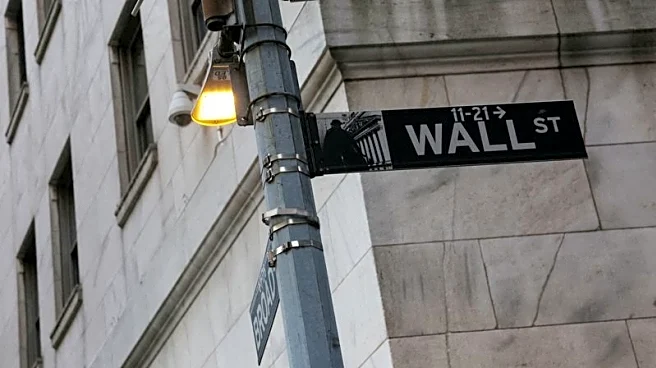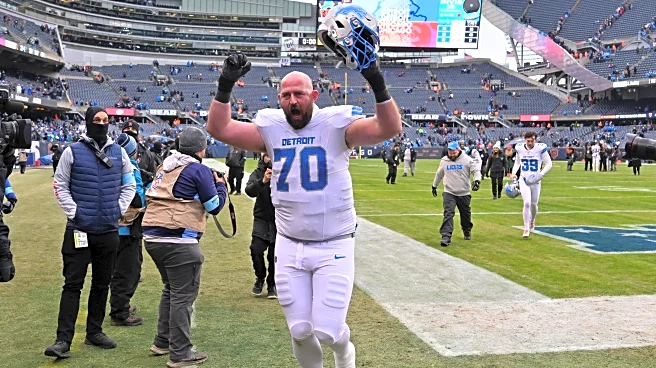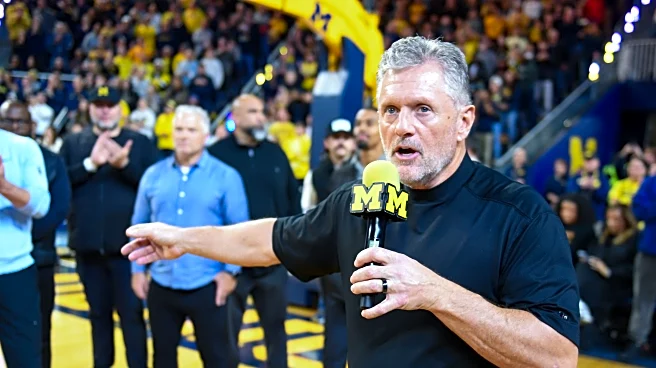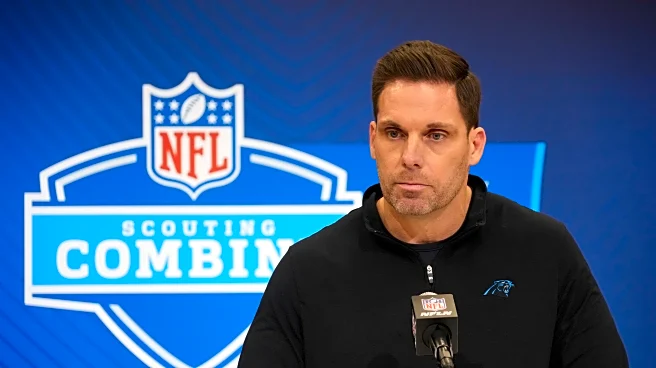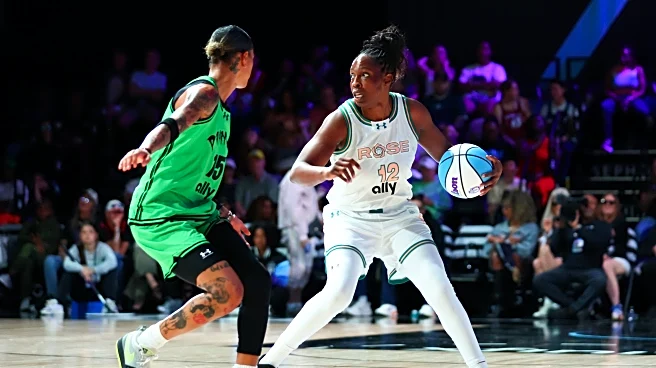What's Happening?
Baker Mayfield, the first overall pick in the 2018 NFL Draft, has signed a three-year, $100 million contract with the Tampa Bay Buccaneers. This deal is notably backloaded and includes three void years, meaning that even if Mayfield becomes a free agent
after the 2026 season, Tampa Bay will still owe him money. Mayfield's journey to the Buccaneers has been marked by several team changes, starting with the Cleveland Browns, where he struggled to adapt to the NFL after a successful college career at the University of Oklahoma. Following a trade request when the Browns signed Deshaun Watson, Mayfield moved to the Carolina Panthers, then to the Los Angeles Rams, before landing with the Buccaneers. His performance in Tampa Bay has been strong enough to earn him this substantial contract extension.
Why It's Important?
Mayfield's contract with the Buccaneers is significant as it positions him among the higher-paid quarterbacks in the NFL, with an average annual value of $33.33 million. This deal reflects the Buccaneers' confidence in Mayfield's abilities and their commitment to building a competitive team around him. The financial structure of the contract, with its backloaded nature and void years, provides the Buccaneers with flexibility in managing their salary cap while ensuring Mayfield's presence in the team. For Mayfield, this contract offers stability and a chance to further prove his capabilities in the NFL, potentially influencing his market value in future free agency periods.
What's Next?
As Mayfield continues with the Buccaneers, his performance will be closely watched to see if he can maintain the level of play that earned him this contract. The Buccaneers will need to strategize around the financial implications of the deal, especially considering the void years that extend financial obligations beyond Mayfield's potential departure. Other NFL teams may also monitor Mayfield's progress, as his future free agency could impact quarterback market dynamics.
Beyond the Headlines
Mayfield's journey through multiple teams highlights the challenges faced by NFL players in finding the right fit and achieving career stability. His experience underscores the importance of adaptability and resilience in professional sports, as well as the strategic financial planning required by teams to balance talent acquisition with long-term fiscal health.





